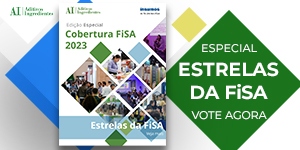Organic supermarket chain, Ekoplaza, has opened the world’s first plastic-free aisle in its Amsterdam store in what is seen as a major victory for the international A Plastic Planet campaign. Plans are ahead to roll-out further plastic-free aisles across all of Ekoplaza’s 74 branches by the end of 2018, including a new store in The Hague, which is set to open later this year.
The aisle offers more than 700 plastic-free products including a range of meat, dairy, confectionery and fruit & vegetable items. Prices are not expected to rise, with plastic packaging replaced by scalable and convenient biodegradable packaging.
A Plastic Planet has been working for 12 months to encourage supermarkets to offer plastic-free products amid global concerns about growing plastic pollution. According to Innova Market Insights data, 58 percent of globally launched food and beverage products are packaged in plastic, a 5 percent increase from 2013, while 96 percent of all newly launched water products in 2017 are packaged in PET bottles. And according to the Earth Institute at Columbia University, only 9.5 percent of plastic is recycled and there are already 165 million tons of plastic debris in our oceans.
Co-founder of A Plastic Planet, Sian Sutherland, said that this news represented “a landmark moment for the global fight against plastic pollution.”
“For decades, shoppers have been sold the lie that we can’t live without plastic in food and drink. A plastic-free aisle dispels all that. Finally, we can see a future where the public have a choice about whether to buy plastic or plastic-free. Right now we have no choice.”
“There is absolutely no logic in wrapping something as fleeting as food in something as indestructible as plastic. Plastic food and drink packaging remains useful for a matter of days yet remains a destructive presence on the Earth for centuries afterwards.”
Ekoplaza also uses eco-friendly alternatives to plastic in the secondary packaging of its plastic-free products. The company uses mainly Dutch suppliers such as Do-It – a large importer of rice and wheat – who provide cartons without plastic tape. “They deliver us products that look like plastic but are 100 percent decomposable,” says Does, who is also concerned by reducing food waste, an issue often associated with decreased packaging. “As an organic company we’d like to have our products as close as possible in terms of the supply chain.”
“We tell them what we need and they produce what we will buy and then you have a large part to the solution of food waste already tackled. It’s the point of taking responsibility, so it’s the complete strategic ambition of the company to provide products the way the consumer expects them to be.”
Despite widespread movements to tackle plastic pollution by eradicating its use, there is a counter-view within the industry that plastic can play a positive role in the environmental future of the planet due to its recyclability potential.
“With all packaging formats, the industry-wide aim is to increase collection, recovery and recycling, and that's the purpose of collaborative efforts such as the Ellen MacArthur Foundation's New Plastic Economy initiative.”
Whether the answer to plastic pollution can be found in the discontinuation of its use as a packaging material, or in the adoption of a full-scale recycling model, is an ongoing industry debate. News of the world’s first plastic-free aisle – a collaboration between environmental campaigners, a supermarket chain, and suppliers – does, however, suggest that the consumer demand for more environmentally-friendly products is growing.
